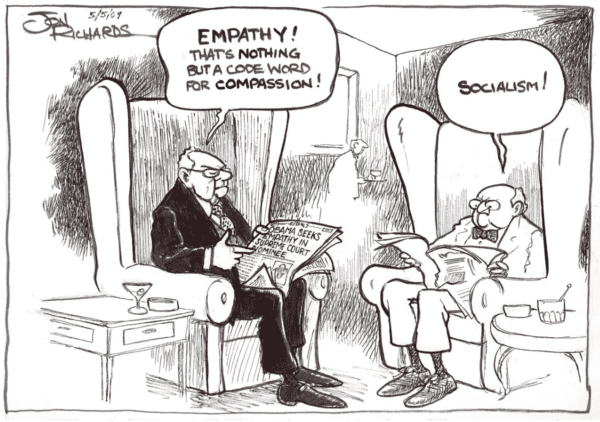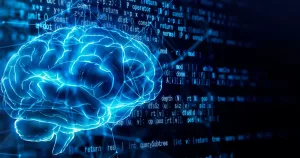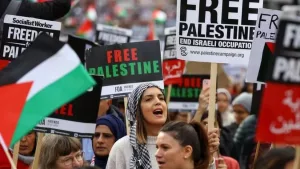Samuel P. Huntington, in The Clash of Civilizations, argued that in the post-Cold War era, conflicts would not be between nation-states but between cultures. He argued that unlike the Cold War, which was fought primarily because of political ideologies and interests, future conflicts would be merely based on cultural differences and social divisions. Throughout history, humankind has always been divided into civilisations with diverse cultural backgrounds, beliefs, traditions, and religions. Undoubtedly, there have always been conflicts between different groups of people and cultures. After all, “Civilizations have always clashed, and the fittest have survived to tell the tale.” (Y.N Harari, 2018)
When analysing the dynamics of civilisations, we tend to ignore that there’s not only division among the cultural differences of civilisations but also that today, the social fabric is internally ripped. Our world is not only divided at the international level but also at the community level and extends across different socio-political contexts. It is not that human beings are divisive or exclusionary by nature; the problem is that we are products of a system which has taught us to divide and categorise rather than unite. Division is present everywhere and has become a standard in our language.
Us vs them
Examples can be the connotation of words we use to label and categorise, such as “Global North” referring to civilised, wealthy democratic states, while “Global South” denotes marginalisation, non-democratic regimes, poverty and lack of development; “first-world” countries referring to modern nations with wealth and “third-world” states with high criminality rates and widespread poverty. At the community level, polarization is also present in racial and cultural divisions in society; even cities are divided by race or cultural groups, “East LA” for “Chicanos” and Latinos. “South LA” for black communities. Brooklyn, Harlem and the Bronx in New York City at a certain point in history for excluded communities. And the examples remain endless, for better or for worse.
Society has a label for everything, ignoring the connotation behind words, guiding opinions and actions on judgements. While it is a natural behaviour of our species’ reasoning, judgements are based on a shallow, superficial layer built on stereotypes, prejudices and biases, hence preserving the lack of in-depth understanding of diverse social, political and cultural contexts.
This is where empathy comes in, as it acts as a balancing force to go beyond superficial thoughts and understand the world through emotions, experiences, cultural contexts and backgrounds that we often overlook. It can counteract our “snap” judgments by encouraging us to see the world from someone else’s point of view. And now, more than ever, there’s a need for empathy to prevent the rupture of social fabrics. It could be a complementary tool to avoid the post-Cold War clashes of civilisation that Huntington described in his book.
“Empathy is our ability to share and understand one another’s feelings—a psychological superglue that connects people and undergirds cooperation and kindness.”
(J. Zaki, 2019)
Defining Empathy
It is worth asking ourselves what this core value is and why it is relevant in bridging the gaps in our society. How does it influence social structures and promote mutual understanding, and what is the role of empathy in global politics when making decisions? Many argue that having empathy is not a concrete action to create social union and reduce polarization at the community and international levels. However, it is possible.
There are many examples of activities purely driven by empathy. Social enterprises could be an example of an empathy-driven model in which social impact is prioritised over maximising profits. Non-governmental organisations also count on a high level of empathy and social consciousness, seeking to improve the situation of vulnerable groups in society through sustainable humanitarian solutions. If we think about it, many historical actions and agreements have been influenced by empathetical thought, and an example could be the Non-proliferation Treaty of Nuclear Weapons NPT; Such agreements aren’t driven purely by empathy itself, and some may argue that combining values with global politics is a liberal left-wing leaning approach that deviates the state’s best interest.
However, historically, many successful decisions have indeed been mobilised by it. In the case of the NPT, for instance, empathy influenced raising awareness of the humanitarian repercussions and understanding the possible devasting consequences of these weapons in a world of nuclear dominance. It probably helped raise a moral and ethical collective consciousness, leading to a disarmament commitment. This is just an example of how empathy could have mobilised decisions in the global political environment; Nevertheless, we have to understand that empathy is a multi-layer tool with a wide range of impacts on different layers of the social structure, from relations between people to bilateral and multilateral relations between states.
When it comes to the community level, you may ask yourself: in a society that lacks empathy, how can empathy be developed to increase mutual understanding between groups of people? The answer is simple. The more exposed someone is to diversity; ideologically, culturally and socially, the more mutual understanding and empathy there is towards other groups of people.
In his book “The War for Kindness: Building Empathy in a Fractured World, ” Jamil Zaki provides an example at the community level of how levels of empathy can be increased. Suppose there are two white, middle-class students. In that case, the one who was more exposed to a multicultural and diverse background will be the one who will show less biased thoughts towards minorities in a white-dominated society. The one who was more exposed to diversity will express acceptance and empathy with black, Hispanic, Asian, elderly, LGBTQ+, disabled people and other socially excluded groups.
Beatriz Grace Obado, Associate Professor of International Relations and Sustainable Development at IE University, explains that in today’s polarised political and social climate, “empathy plays a pivotal role in promoting effective communication and conflict resolution.” Professor Obado argues that by genuinely empathising with others’ experiences, emotions and backgrounds, individuals can develop a dialogue with a better understanding of their concerns and motivations, promoting a constructive conversation by which efficient solutions can be reached even in the face of profound disagreements.
Within the world of political polarisation and clashes of ideologies, she explains that empathy is a tool through which we can bridge the gap between individuals with differing political ideologies because when we encourage individuals to empathise with other people’s perspectives and backgrounds, empathy can facilitate more profound understanding of the values and concerns of opposing political beliefs.
“Empathy encourages individuals to listen to understand, rather than merely listening to hear.”
(B.G Obado, 2023)
The paradox of political empathy
How can we engage as a community in a political conversation, avoiding conflicts between people? The answer could be empathy; however, we also need to consider that we are selective and tend to choose the people we want to empathise with based on ideologies and ways of thinking. There is always a selective bias that can counteract the practice of empathetic reasoning. We tend to empathise with the groups of people that are most aligned with us under the commonality of experiences.
Empathy is often criticised as a practice with a lack of objectivity that can lead to inefficient policymaking and subjective decision-making and that, in some cases, can perhaps be manipulated to sway public opinion. Still, the punchline is simple: “When people work, live, or play alongside each other, divisions between them melt.” (J. Zaki) Even in the toughest settings, contact between groups of people helps erase selective biases and empathise with each other, understanding diverse backgrounds.

Learning to use this tool to reduce division in the world and promote less polarised societies with mutual understanding and community engagement is essential. Through empathy, there can be an understanding between the demands of society and the actions taken by the government to satisfy such needs. In a political landscape characterised by ideological differences, common grounds and bargaining points can be found through mutual understanding to achieve efficient policymaking. We must learn to think about global conflicts through an empathetic point of view.
Final thoughts
Now more than ever, there’s a need in our society for less division, less exclusion, and increasing multicultural acceptance. Globalisation, interdependence, and global interconnectedness make our civilisations increasingly diverse; therefore, understanding diverse backgrounds, ideologies, and cultural identities through empathetic thinking is essential in designing a peaceful, sustainable future society without the constraints of a biased-driven society. We are the inhabitants of one world, a common heritage to humankind, and for it to survive, empathy is needed.







